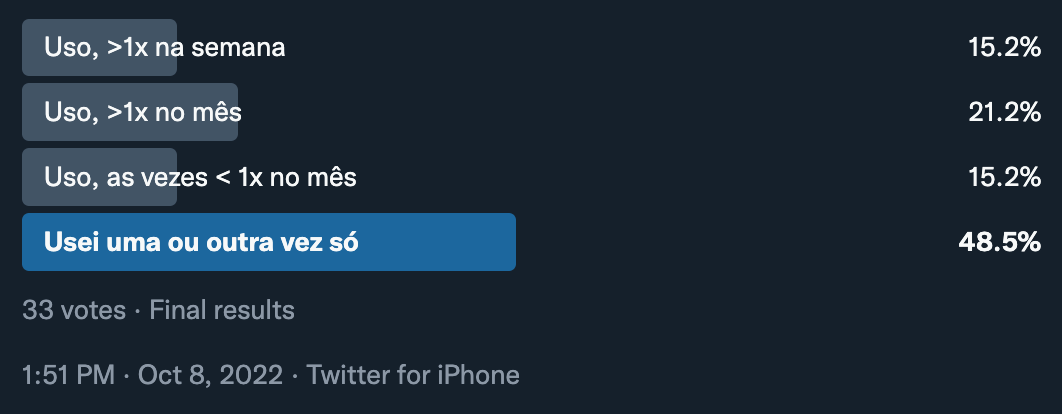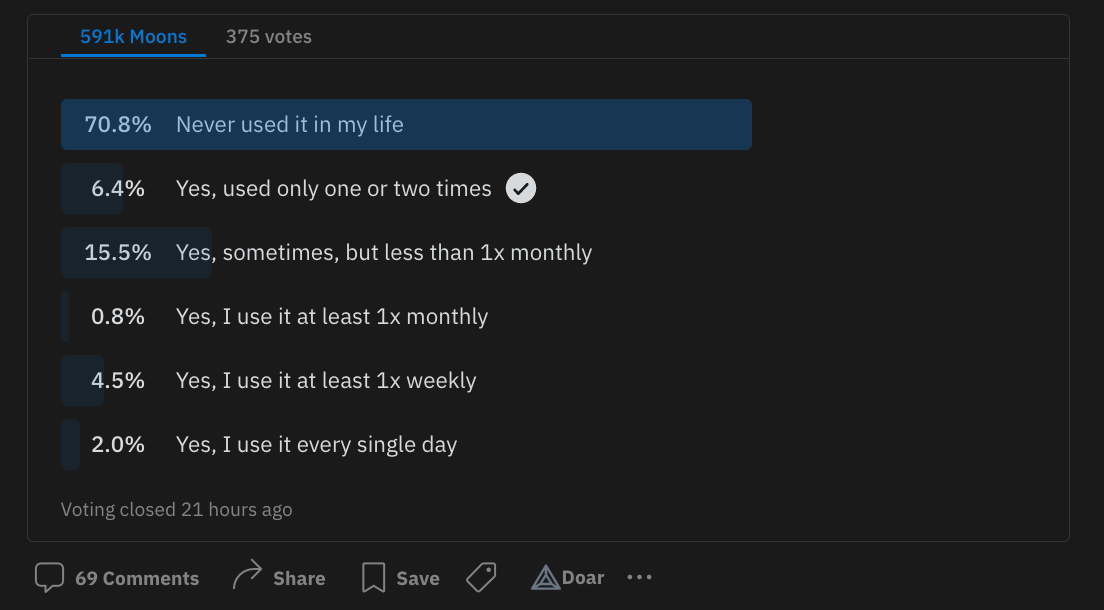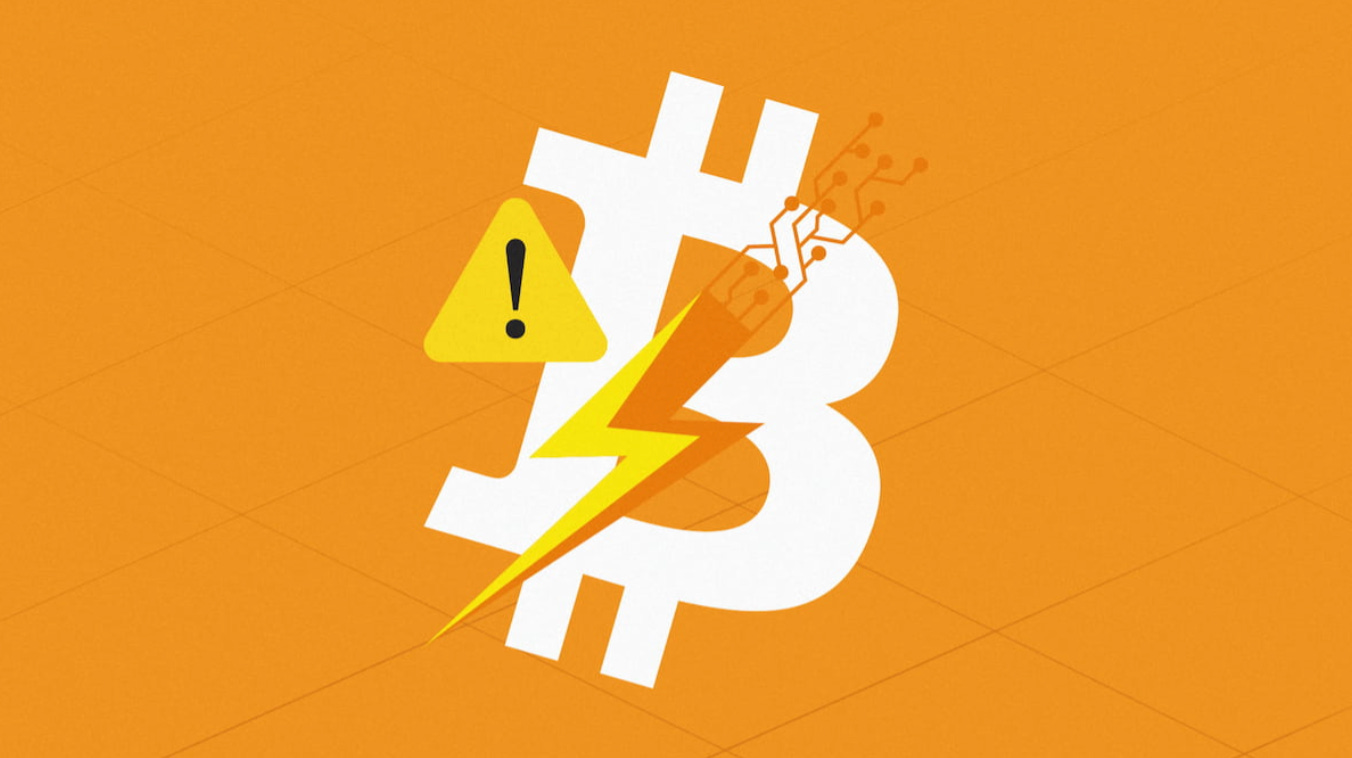Research on Lightning Network Experiences
I performed two quick user experience surveys with the Lightning Network and will quickly report on the data collected and some conclusions.
I've been trying to understand more about the Lightning Network from a user experience point of view, as I see many enthusiasts (mostly self-called "bitcoin maximalists") openly advocating the tool as a real scaling solution while using BTC as money for everyday life — trying to get new users on board with the technology.
I have a keen interest in using decentralized money for everyday activities, and when I talk to people who are looking for the same (or living it in practice), their experiences involving lightning are usually pretty negative.
Among the negative reports I see, mainly:
Custody;
Dependence on intermediaries for routing and tendency to centralize between them;
"Voucher" system whose redemption can be stopped;
Payments that are not completed;
Lack of routes between channels;
Higher fees than expected;
Lack of liquidity for higher values;
etc.
Among well-known names in the market, Eric Wall's (@ercwl) negative experience recently went viral, with a failed attempt at a simple transfer through LN.

So, in my perception, there is a contradiction between:
A) Many people defending the use of the technology, without so many reports of real use;
B) Many people who use it, reporting that the experience is bad and it is not a viable solution.
I continue to search for a plausible answer to this dilemma, as I end up being limited in my own perception and in the perception of those with whom I relate.
On a theoretical level, I have my reasons for not liking Lightning and preferring to keep my transactions on first-tier blockchains or block-lattices, with more security and decentralization, which leads me to think that my practical perception of the technology may be biased. So I tried to challenge my bias.
Challenging my bias
I recently asked the question to twitter. And I got a total of 33 votes in 24 hours, where:
5 (15.2%) say they use it every week,
7 (21.2%) say they use it every month,
5 (15.2%) say they use it less than once a month,
16 (48.5%) who used it only once or twice.

Even though I encouraged people to comment on their experiences, I received comments only within low-frequency uses: less than once a month; only once in a while; or never. And mixed experiences between satisfying or not.
Notably, no reports were of medium or high frequency use. Which is strange and makes me consider that there is a large margin of error in the research, which already has a small sample by itself.
With the lack of validation of high frequency experiments, I question the relevance of the quantitative results and even wonder if they are real, or just an inexplicable attempt to manipulate the results of such a simple survey.
I then repeated the same poll on r/CryptoCurrency, the largest global cryptocurrency subreddit, with over 5.5 million members. The result was as follows:
I received 375 votes, for a total of 591,000 Moons. Votes are weighted by the amount of moon each voter has, giving more weight to more active and more reputable users. Moon is a token that works as a points system for the sub participants. There were 69 comments.
70.8% of votes say they have never used LN
6.4% used it only once or twice
15.5% used it a few times but less than a month
0.8% use it at least once a month
4.5% use it at least once a week
2.0% use it every day.

Among the reviews I had a few very complete high frequency usage experiences. The reports were highly credible, in my opinion. Of these, most were positive. Others stated that they use it, they like it, but believe that the technology is not yet ready to solve payments to ordinary users — it is still very complex and theoretically flawed.
The rest are from negative experiences or people who would like to use it, but don't, for various reasons. And a good part are people who, like me, believe that there are better alternatives to decentralized money for everyday use. Seeking transactions carried out in a first layer, with more security, efficiency and better UX.
Some of the options mentioned are:
Bitcoin (BTC) on-chain
Nano (XNO)
Monero (XMR)
Bitcoin Cash (BCH)
Dash (DASH)
XRP Network (XRP)
Stellar (XLM)
Litecoin (LTC)
A minority stated that they believe that bitcoin is a great store of value, but that there is no intention to use BTC in their daily lives, as fiat currencies already fulfill the role of “currency” well.
My quick conclusion, so far, is that many people end up replicating what influential people say, defending a technology that they themselves have used very little and perhaps have no real interest in using, for the proposed solution, but I could be completely wrong!
It's still too early to tell and the data sample is small. So if you use the Lightning Network for payments; tips; donations; ordinary transactions such as splitting a restaurant account, send money to friends and family, or deposit/withdraw BTC from exchanges; international remittances, friendly small bets, or consumption of digital content — I'd love to hear more about your experience!
Please comment in as much detail as possible.
And in case you're just out here trying to learn more about the positives and negatives of lightning, the next time you see someone advocating the technology as a scaling solution for Bitcoin, ask if they've used it, use it regularly, and how often.

![[en] vinibarbosa.research](https://substackcdn.com/image/fetch/e_trim:10:white/e_trim:10:transparent/h_72,c_limit,f_auto,q_auto:good,fl_progressive:steep/https%3A%2F%2Fsubstack-post-media.s3.amazonaws.com%2Fpublic%2Fimages%2F50c13862-170c-45ba-99ea-2f2f44dbd93a_1250x314.png)

![[en] vinibarbosa.research](https://substackcdn.com/image/fetch/w_36,h_36,c_fill,f_auto,q_auto:good,fl_progressive:steep,g_auto/https%3A%2F%2Fbucketeer-e05bbc84-baa3-437e-9518-adb32be77984.s3.amazonaws.com%2Fpublic%2Fimages%2Fab5a2fd1-d28e-485c-be40-5f42ac3c7bb2_1080x1080.png)

